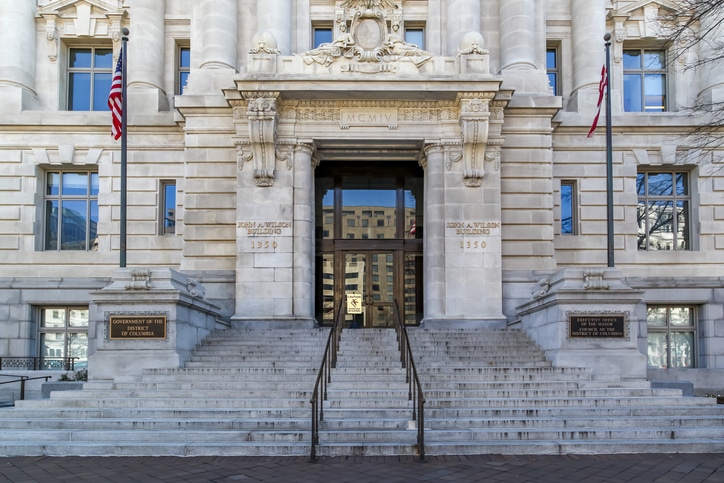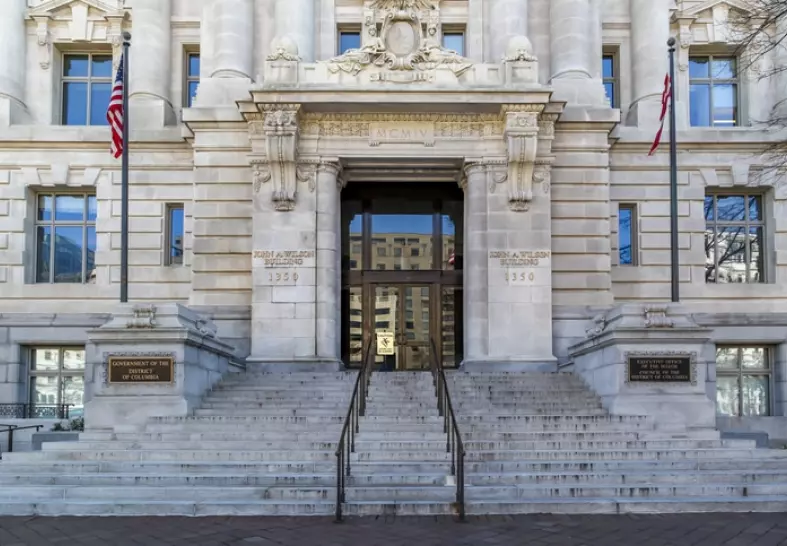The stars have aligned for the opportunity Washington DC has waited for since legalizing cannabis under Initiative 71 passed. Democrats hold Congress (on paper, obviously less in practice), the Presidency, and the Harris rider that has prohibited the city from creating a retail tax and sale system for cannabis since 2015 is conspicuously absent from the current version of this year's federal spending bill. It looks like recreational marijuana sales are on the menu, boys! So much so, that District leadership announced a November 19th session to begin planning what the future of weed in the city will look like. But don't count those chickens too quick, friend! DC Marijuana Justice, the organization largely credited with getting I71 passed in the first place, says they're picking up chatter that Congressional Republicans will try to reintroduce the Harris rider. Emboldened by recent election wins, I'd take odds on this scenario playing out.
As the next few months are looking to be a busy season for news about the fate of Initiative 71's incredibly diverse market of entrepreneurs, we were already planning to write up a piece that could serve as a hub for updates to share with you throughout the process. We weren't expecting the vitriolic offensive against I71 vendors from Council Chairman Mendelson last week to get the ball rolling this soon, but here we are! Let's catch you up:

The Illicit Market Enforcement Acts
In a last-minute addition to the November 2nd DC Council Legislative Meeting, Chairman Mendelson's office issued a memo to introduce emergency measures that would shut down the Initiative 71 market and deny the recreational cannabis access the District's citizens overwhelmingly voted for in 2015. Ostensibly, this is to save the city's struggling medical marijuana dispensaries and the cultivators that supply them. See, half their customer base dropped out from the program when the emergency legislation that prevented their cards from expiring ended. That doesn't equate to actual sales, which should be the way we measure this, but let's presume it's had some adverse effect.
So the plan was to shut down the Initiative 71 market immediately by means of emergency legislation via Mendelson's Illicit Market Enforcement Emergency Declaration, Amendment, and Temporary Amendment Acts. These bills would have created exorbitant fines for I71 businesses and their landlords, including sealing of premises by the Metropolitan Police Department in the case of storefronts. "Many of these patients may be driven to purchase illicit cannabis,” claimed Chairman Mendelson in a memo directing these Acts to be added to the agenda. He wants to deny MMJ cardholders, certified under city guidelines to have legitimate need for cannabis medicine, the right to choose where they obtain it, and deny access for recreational use entirely in the process.
Initiative 71 Gets a Reprieve (for now)
As you can imagine, there was an uproar from the District's cannabis community when the news broke. Thanks in large part to grassroots campaigning from entrepreneurs, patients, and advocates on both social and traditional media, the Illicit Market Enforcement bills were removed from the agenda come Monday morning. Two separate organizations have also been formed and will fight together for Initiative 71's vendors seat at the table when recreational cannabis sales are discussed- GEM, the Generational Equity Movement, and the I71 Committee. Full disclosure, Gentleman Toker has joined the I71 Committee.
How You Can Save I71
So the immediate danger may have passed, but we are wary of Chairman Mendelson's intentions and alliances going forward. On November 19th, you have an opportunity to be heard by the Council- no matter what state you claim residency in- over Zoom in a public session. On the same day, a rally is planned outside City Hall to implore DC's leadership to listen to the people whose livelihoods will depend on their decisions. Please consider participating in one or both if Initiative 71 has improved your life. If you'd like to speak to the City Council, November 17th is the last day to sign up- but don't wait that long! Click that link now, I'll wait. I need to make another cup of coffee anyway.
Shutting Down I71 is a Bad Idea
Do you remember what it was like trying to find trustworthy and quality cannabis in DC before Initiative 71? Cracking down on these vendors before a recreational sales system is open for business will effectively bring the District back into Prohibition. Helping the struggling medical market by legislating away their choices would have far-reaching consequences that would hurt literally everyone else in the city. Here, let me explain why shutting down I71 is bad for people that like weed, people that don’t really care about weed, and the city’s own pocketbooks.
Whether you enjoy a spliff on a Saturday or smoke everyday, shutting down the I71 market is bad news. You won’t be cut off from recreational cannabis entirely- everyone knows who won the War on Drugs. It’ll simply devolve back into the illicit market from the safe, mature, competitive market that exists today.
This is largely in part thanks to city leaders like Mayor Bowser that stood up to Congressional Republicans in 2015 when they tried to block legalization entirely by way of the Harris rider. That was its original, intended purpose, if you remember. The current state of things is a workaround that left both parties unhappy with the final result. That's politics, eh?

Diversity of DC Weed Start-Ups
Even if you don’t partake yourself, there are lots of good reasons you should support the city’s existing cannabis laws. For starters, a staggering number of the businesses that operate under Initiative 71 are owned by people of color. You will not find such rich diversity in any other state’s licensed cannabis program - there are too few licenses available and too many hurdles to clear for regular, everyday people to participate as anything other than employees. Initiative 71 represents more than legal weed. It’s a rekindling of the American Dream and the entrepreneurial spirit of its citizens. I’ve seen so many lives transformed by the Green Rush of Initiative 71 and the path it has created to the middle class and generational wealth-building that is in scant supply elsewhere. It would be a great shame to bring this to such a sudden end instead of working out a fair middle ground that will not exclude minority-owned businesses.
If the Initiative 71 businesses are pushed out, patients will be forced to the illicit market and options that are less safe for them. Is the plan to go back to arresting people for selling weed? Which communities do you think will be most adversely affected by increased police scrutiny? I don’t think you need to be Pat Sajak to solve the puzzle here. Racial tensions in this country are already heated; arresting law-abiding entrepreneurs is moving backwards on the progress we’ve made towards healing the wounds left in our nation’s collective psyche, and minority communities in particular, by the War on Drugs.
Economic Impact of Initiative 71
Further, the Chairman's proposal would “authorize civil penalties for the housing providers of illegal cannabis businesses.” Commercial landlords and Initiative 71 businesses formed a symbiotic relationship during the COVID-19 pandemic, creating the thriving storefront market we enjoy today. With more and more businesses going remote, retail dying to Amazon, and an ongoing pandemic, who exactly is going to fill these spaces if cannabis businesses are evicted? How will property owners restore that revenue?
Recreational cannabis availability also promotes tourism to DC. I’ve talked to countless visitors from all along the East Coast that came to DC to check out the weed scene here. They pay for hotel rooms, they eat out at restaurants, they patronize the District’s bakeries and convenience stores. All of these businesses and more are still reeling from the economic conditions brought on by COVID-19. Distressing their margins further by discouraging cannabis tourists will surely impact whether these businesses survive.
Who Benefits? Big Weed
Shuttering the Initiative 71 market is not the solution to helping the District’s medical dispensaries, some of which are already owned by weed conglomerates like Columbia Care. Given the rapid turnover of licenses and proliferation of "management agreements" with multi-state operators in Maryland and Virginia's medical programs, I think we'll see the rest of DC's medical marijuana businesses flip their licenses for a tidy profit in the very near future. These MSOs would have benefited the most from Chairman Mendelson's Illicit Market Enforcement Acts in the end, not the people or the businesses of this city. Initiative 71 could certainly be improved and I encourage the Chairman to work with his constituents, and not corporate lobbyists, to do so.
